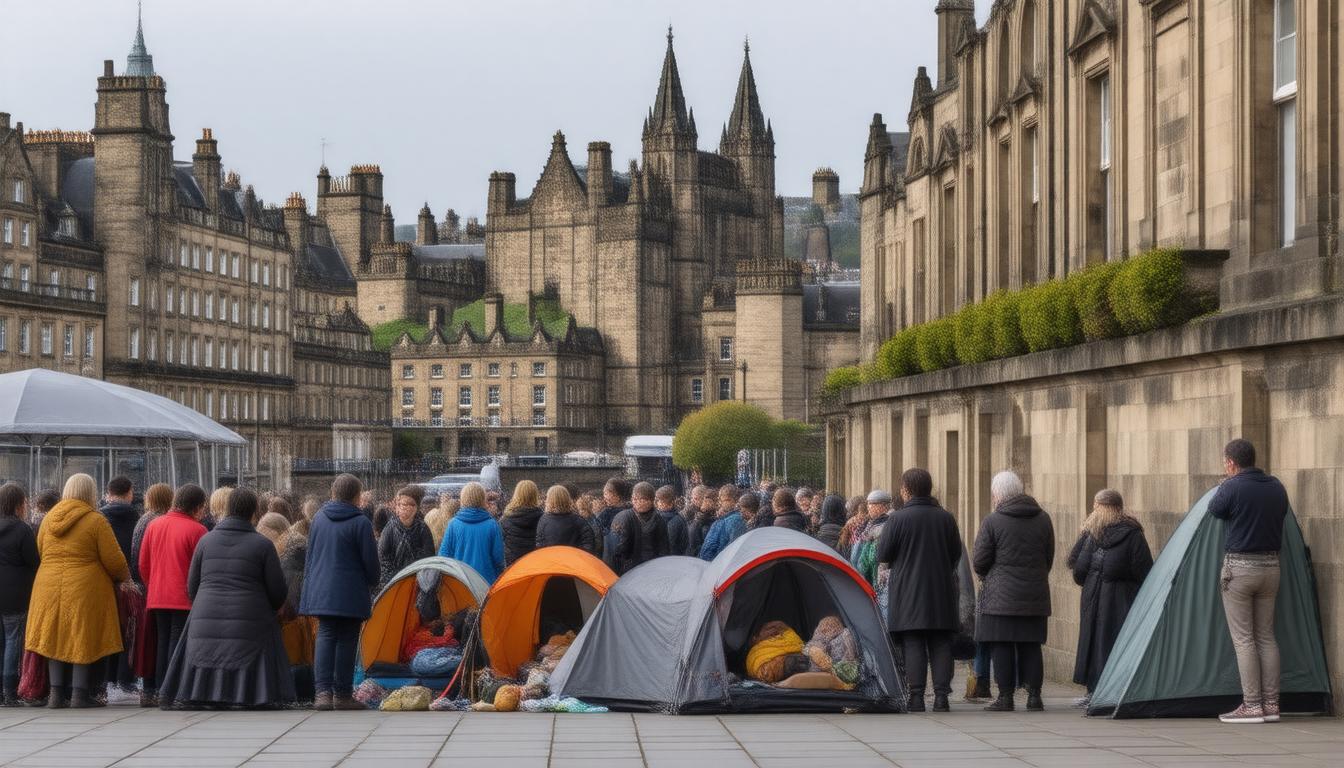In a significant development aimed at safeguarding the welfare of vulnerable communities, the City of Edinburgh Council has embarked on a decisive initiative to relocate over 700 homeless individuals residing in unlicensed temporary accommodations. The council’s plan to address the persistent issue comes in light of growing concerns regarding the health and safety standards of such facilities, particularly hotels and B&Bs, where residents have been staying without the necessary licensing. This urgent measure is set to conclude by the end of November 2024, a timeline that underscores the council’s commitment to resolve the matter in a timely manner.
The backdrop of this initiative stems from the unprecedented challenges posed by the COVID-19 pandemic, during which the council allowed these types of accommodations to function without comprehensive checks and balances. Many properties have since been discovered to violate the licensing regulations for Houses in Multiple Occupancy (HMO), thereby putting occupants at risk. To remedy this situation, the Edinburgh Council has opted to momentarily suspend new applications for social housing and non-urgent repairs to redirect its efforts towards securing lawful housing for those affected. Legal concerns have also been raised regarding the council’s potential liabilities stemming from continuing operations that breach established health and safety standards.
Initially established as a temporary solution during the onset of the pandemic, the availability of such accommodations increased exponentially, resulting in a sizable increase in the number of households currently living in temporary accommodation from 3,570 in 2020 to over 5,000. The council aims to facilitate the transition to proper accommodations for all individuals residing in unlicensed properties by the beginning of December. This move may serve as a catalyst for impending changes in Edinburgh’s housing policy, encouraging a re-evaluation of the city’s approach to managing and supporting its homeless population.
Key Takeaways
- Edinburgh Council plans to relocate over 700 homeless residents from unlicensed temporary accommodations by the end of November.
- The decision stems from health and safety breaches linked to COVID-era housing measures and the failure of landlords to comply with licensing regulations.
- To prioritize this relocation effort, the council has suspended new social housing applications and non-urgent repairs.
Background of Temporary Accommodations in Edinburgh
In Edinburgh, the City Council has announced a significant measure to address the troubling issue of homelessness, particularly regarding individuals residing in unlicensed temporary accommodations such as hotels and Bed & Breakfasts (B&Bs). By the end of November 2024, approximately 700 households will be relocated from these inadequate living situations which have repeatedly violated the licensing regulations for Houses in Multiple Occupancy (HMOs) (Edinburgh City Council, 2024). This decision comes in the wake of the COVID-19 pandemic when, in an effort to provide immediate shelter, the council temporarily bypassed rigorous licensing checks, inadvertently compromising health and safety standards in the accommodations provided. As a protective response, the council has implemented a halt on new applications for social housing and non-urgent repairs to ensure resources are efficiently redirected towards relocating these vulnerable individuals into quality, licensed housing (Scottish Housing News, 2024). Legal experts have indicated that the council might encounter repercussions for continuing to fund operations that contravene health requirements, further emphasizing the urgent need for a resolution (BBC News, 2024). Since the onset of the pandemic, the number of households in temporary accommodation within the city has increased dramatically, soaring from 3,570 in 2020 to over 5,000 today, underscoring the pressing nature of the housing crisis (The Scotsman, 2024). The council is committed to achieving a complete transition to proper accommodation for all individuals currently living in unlicensed HMOs by early December.
Council’s Strategies and Implications for Future Housing Policy
To facilitate this transition, the council has partnered with multiple local housing organisations and charities, primarily focusing on ensuring that those affected have access to secure and stable housing options moving forward. With the deadline for relocation approaching, priority will be given to vulnerable families and individuals who are at risk of homelessness. Moreover, the council plans to implement stricter regulations and increased oversight on landlords, aiming to enforce compliance with HMO licensing effectively (Edinburgh Evening News, 2024). This initiative not only alleviates the immediate housing crisis but also sets a precedent for future housing policy, which will focus on sustainable practices and the necessity of maintaining health and safety standards in all forms of housing (Scottish Government, 2024). As the council navigates these challenges, they remain conscious of the broader implications of their decisions on public health and community well-being, reaffirming their commitment to providing safe living conditions for all Edinburgh residents.





